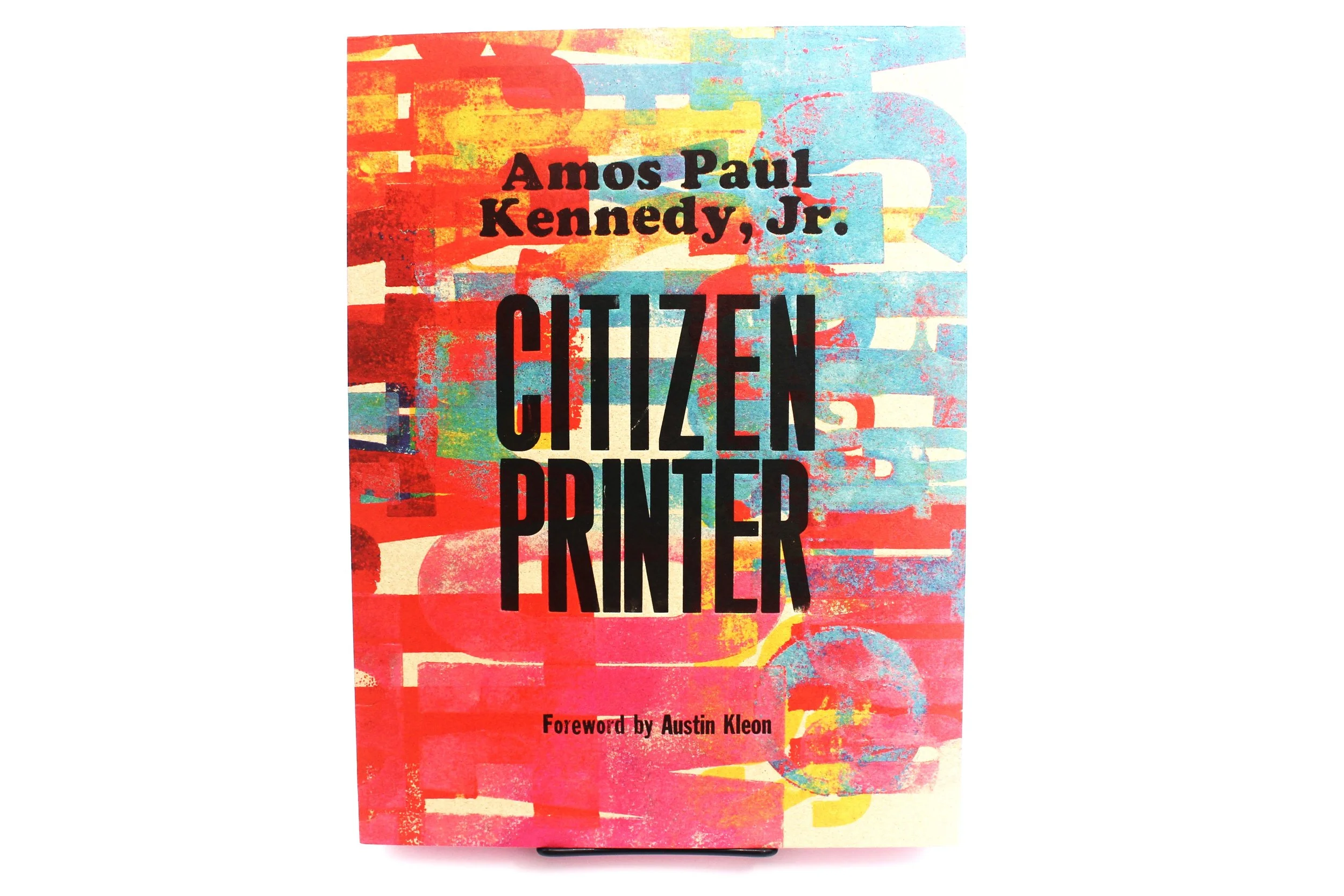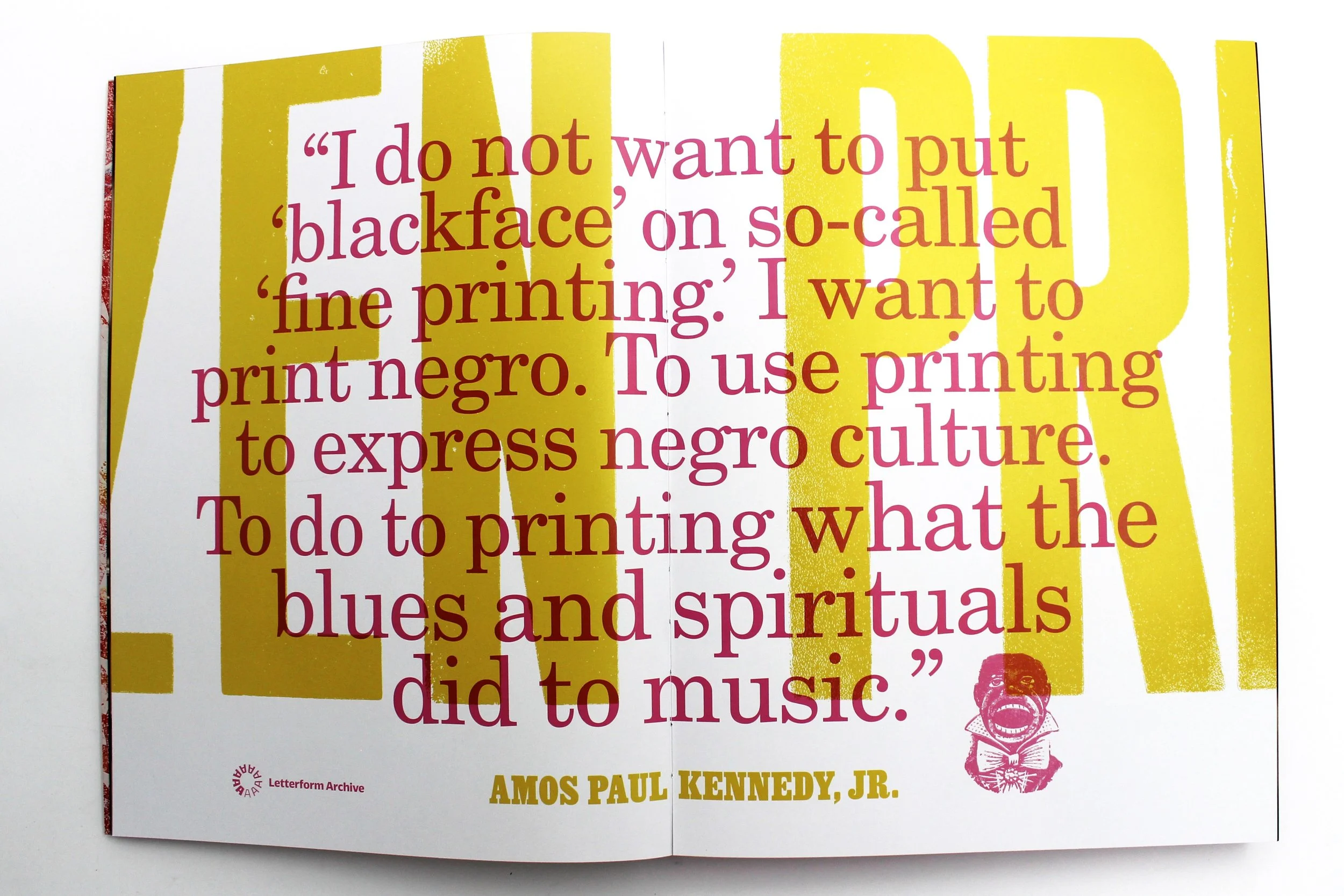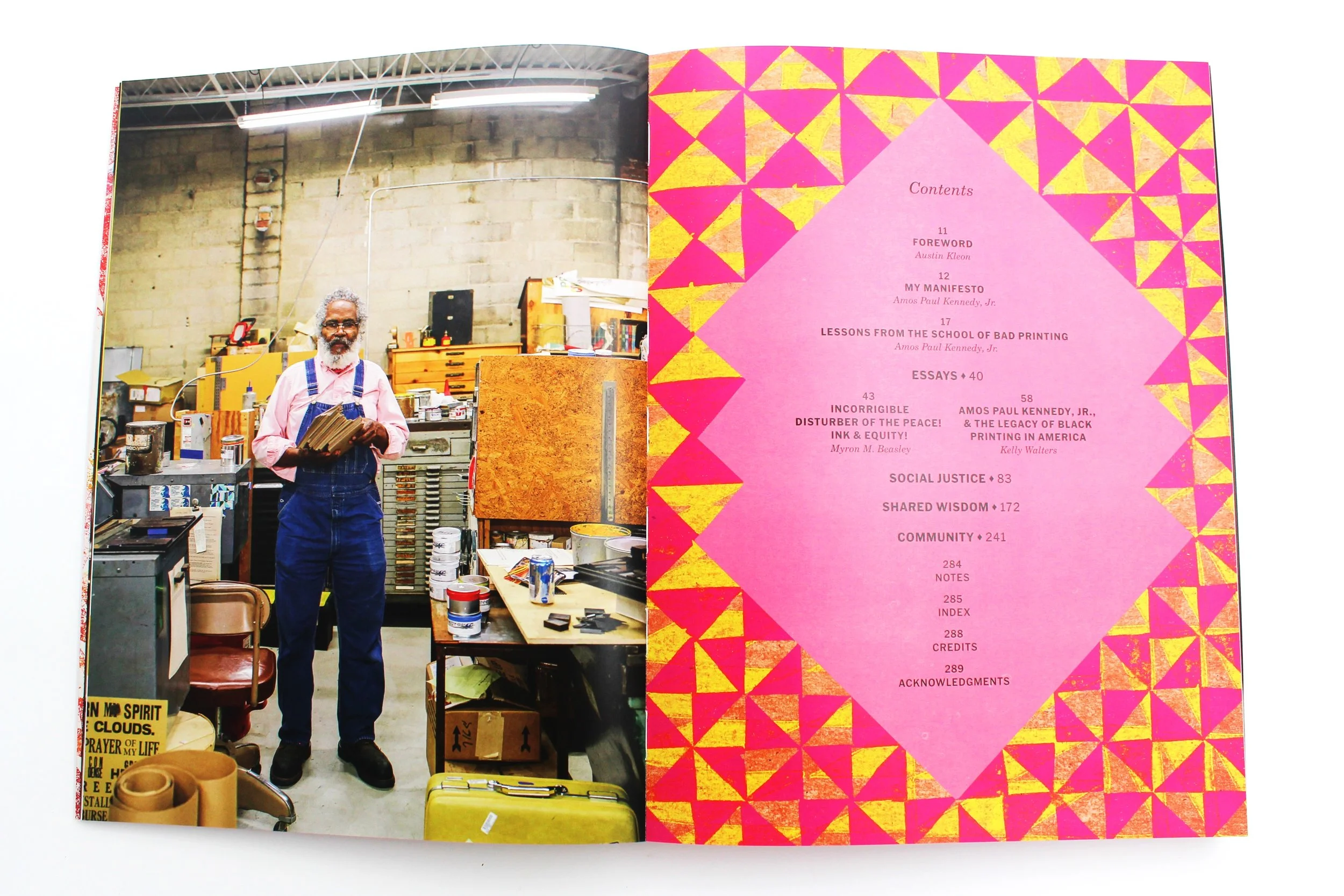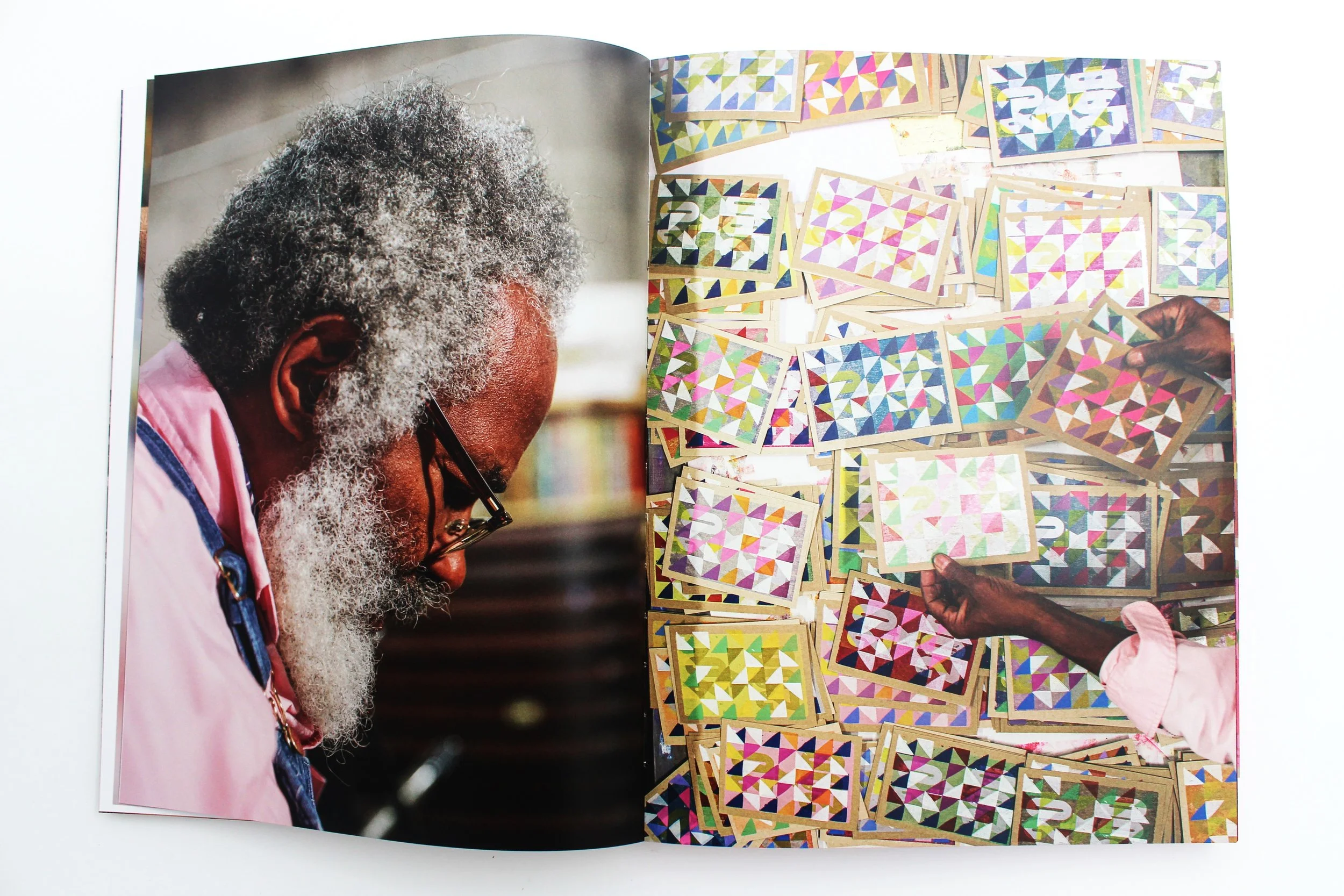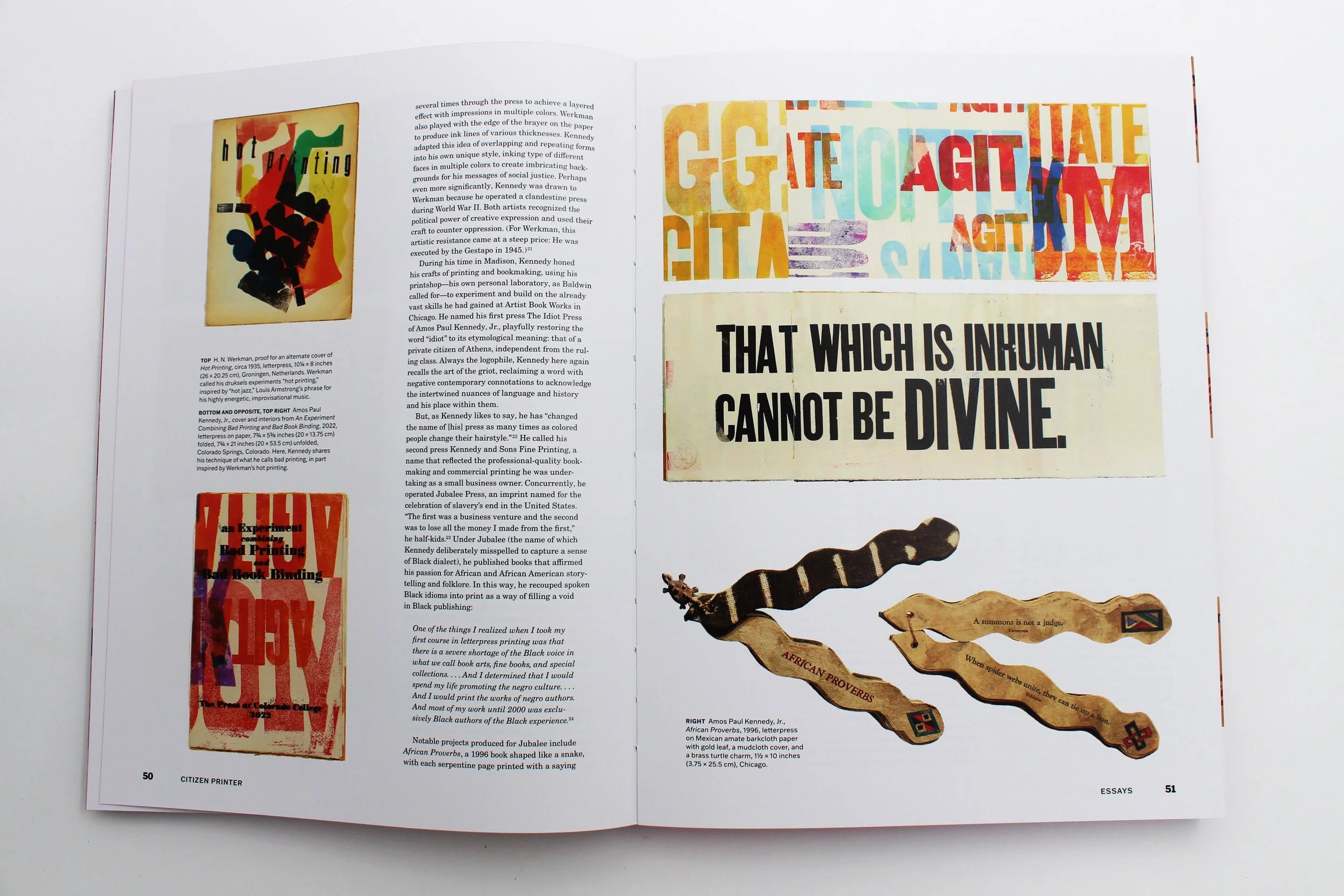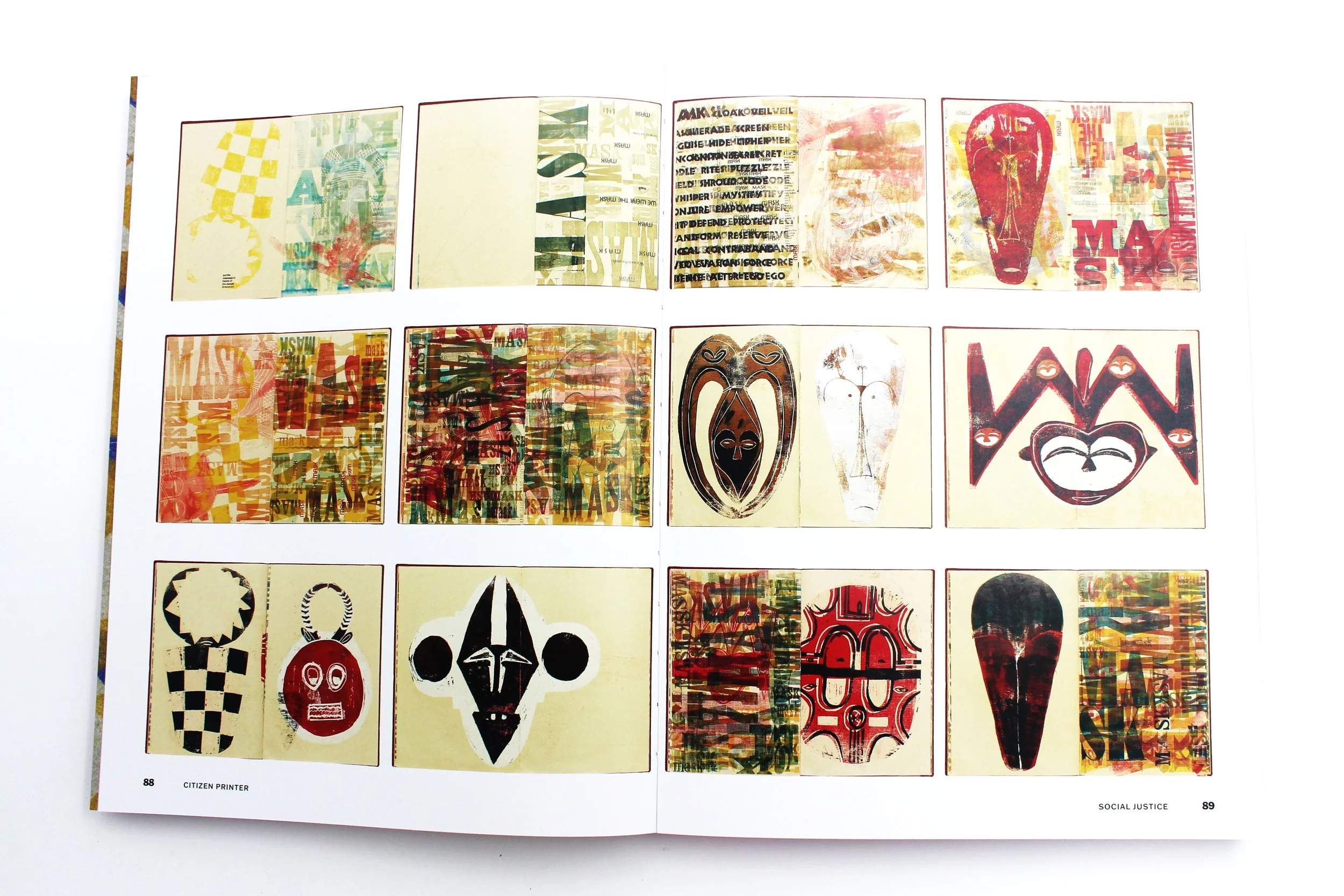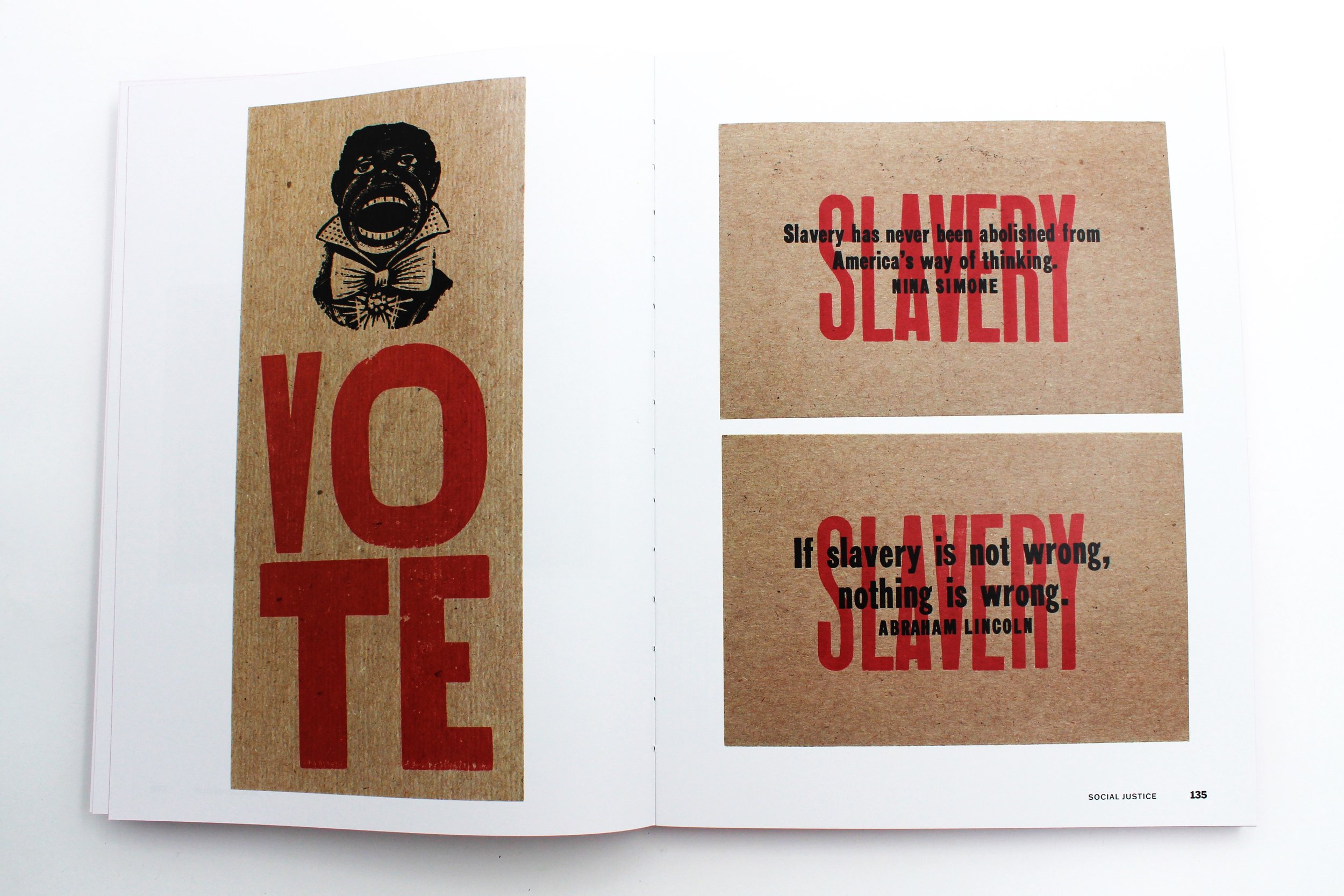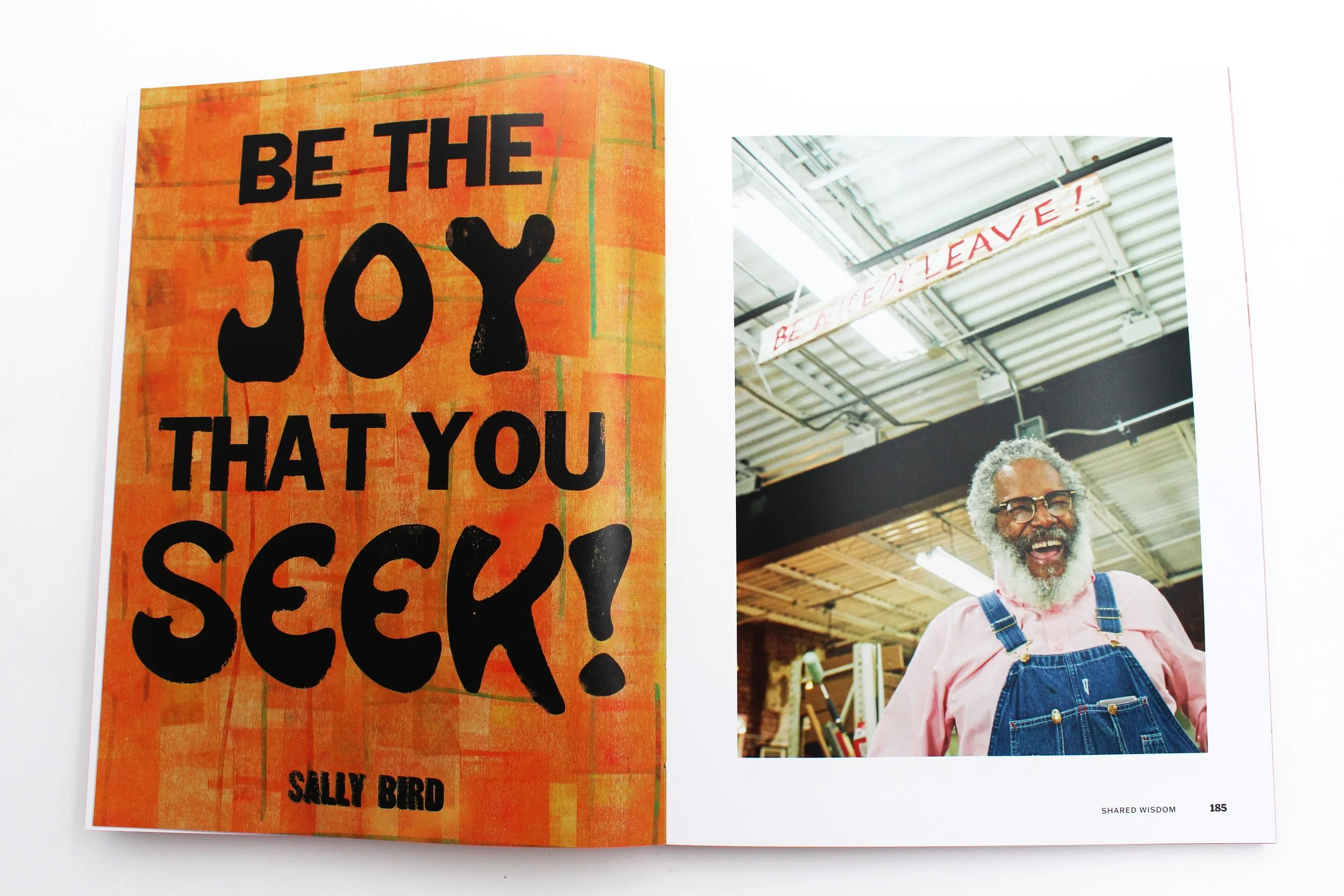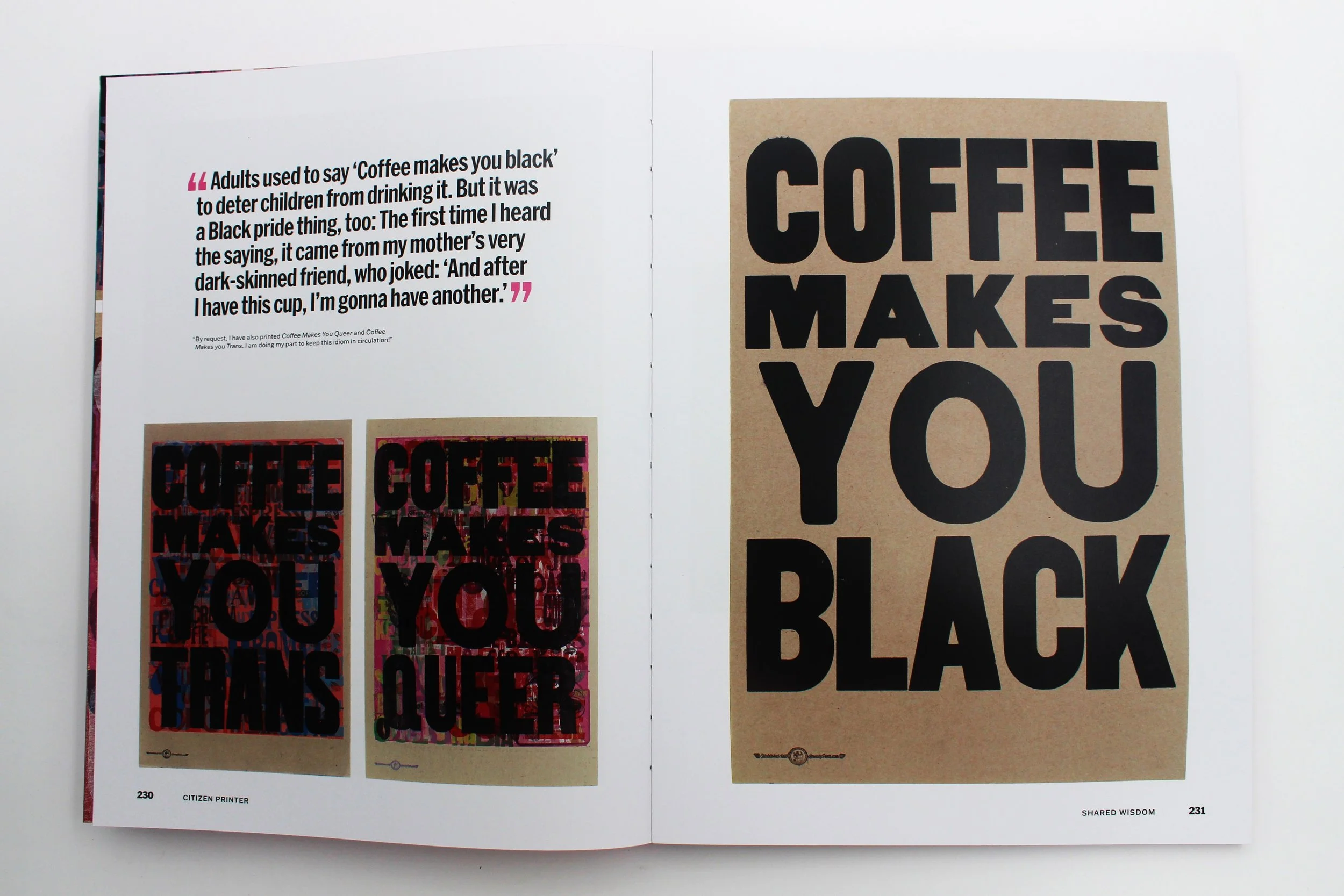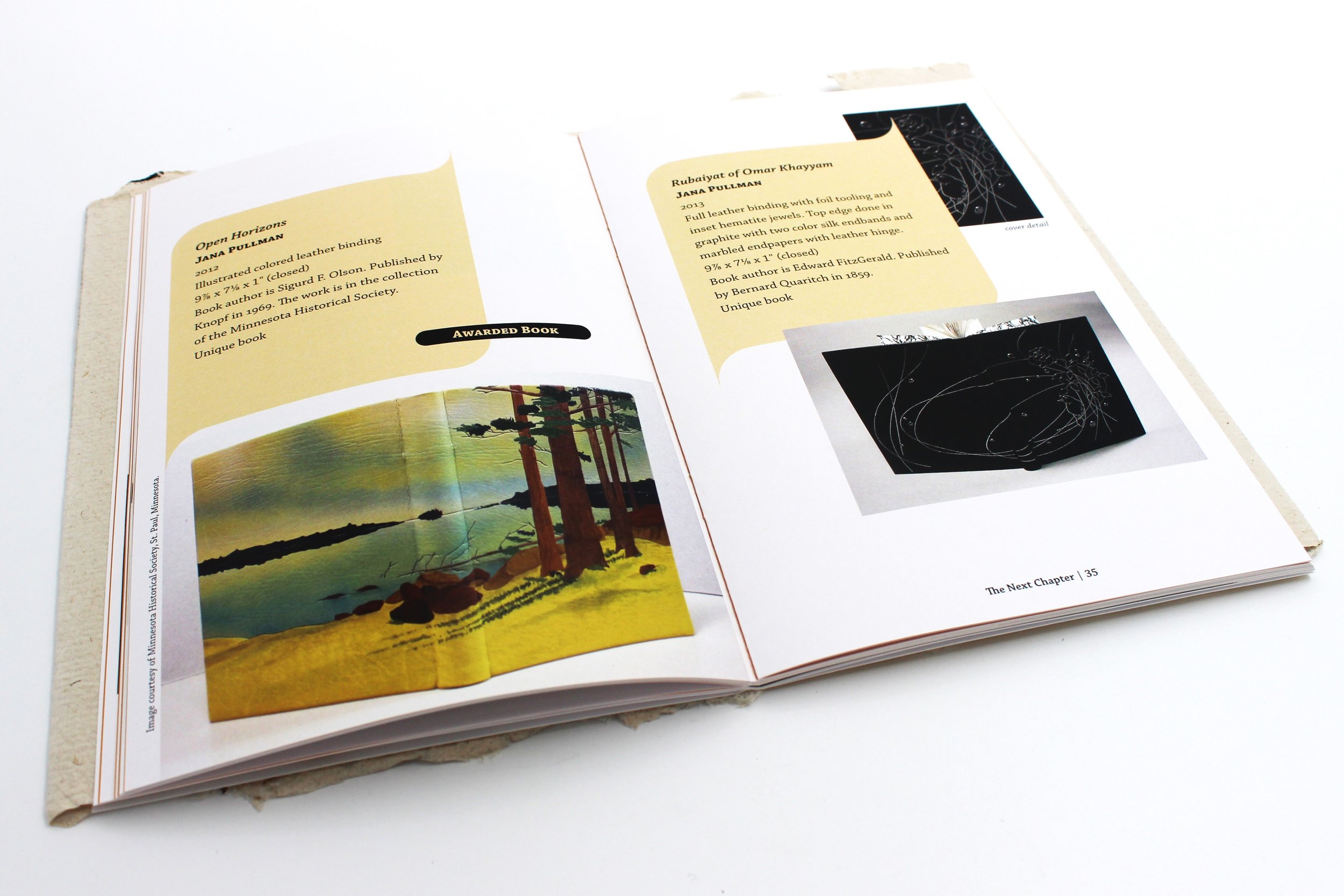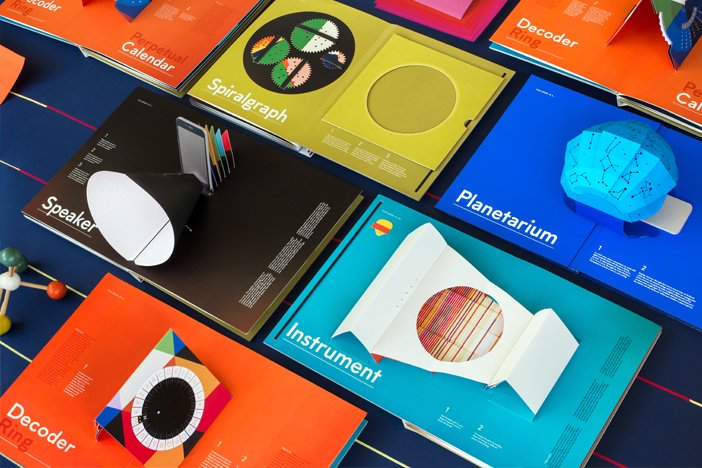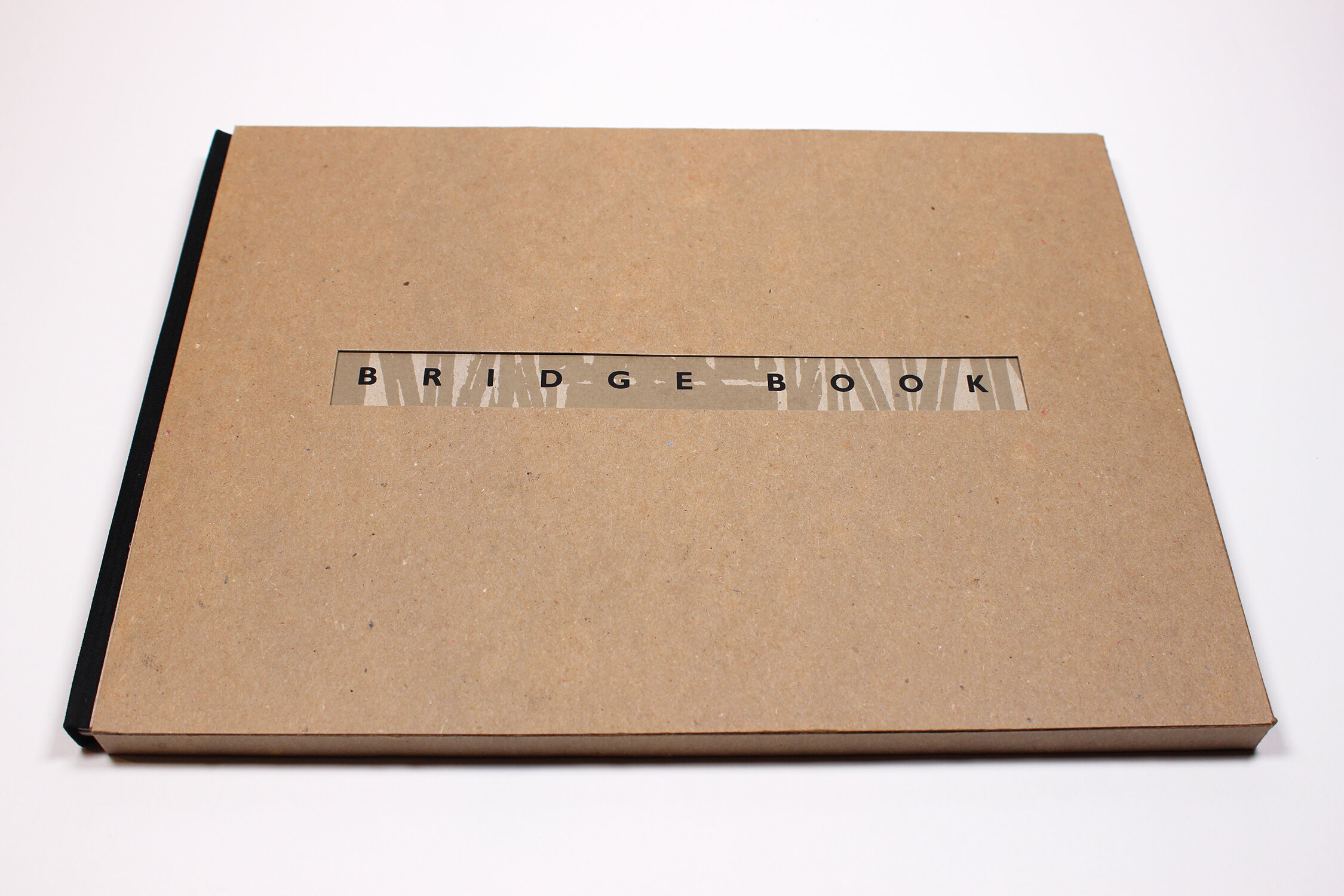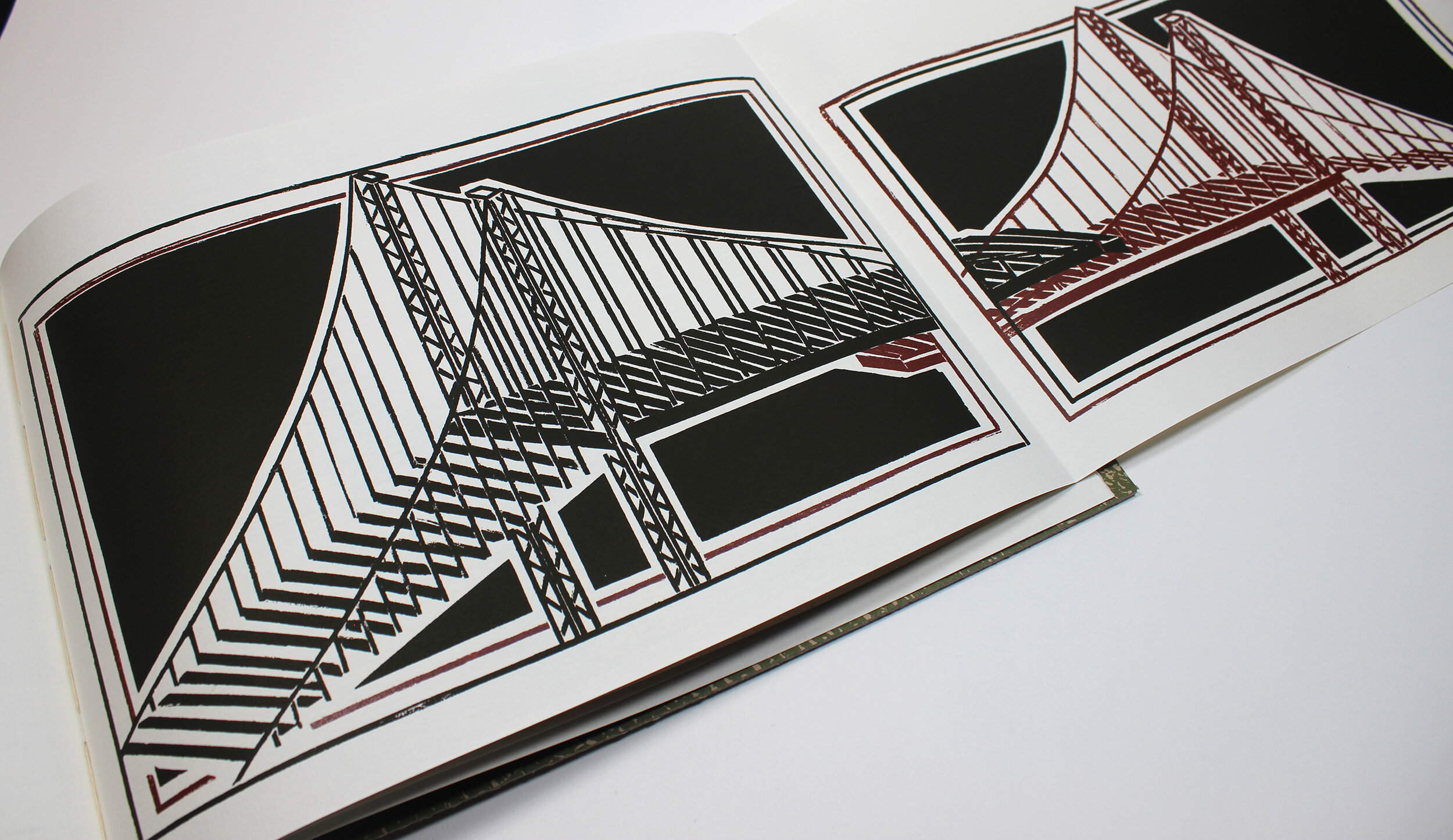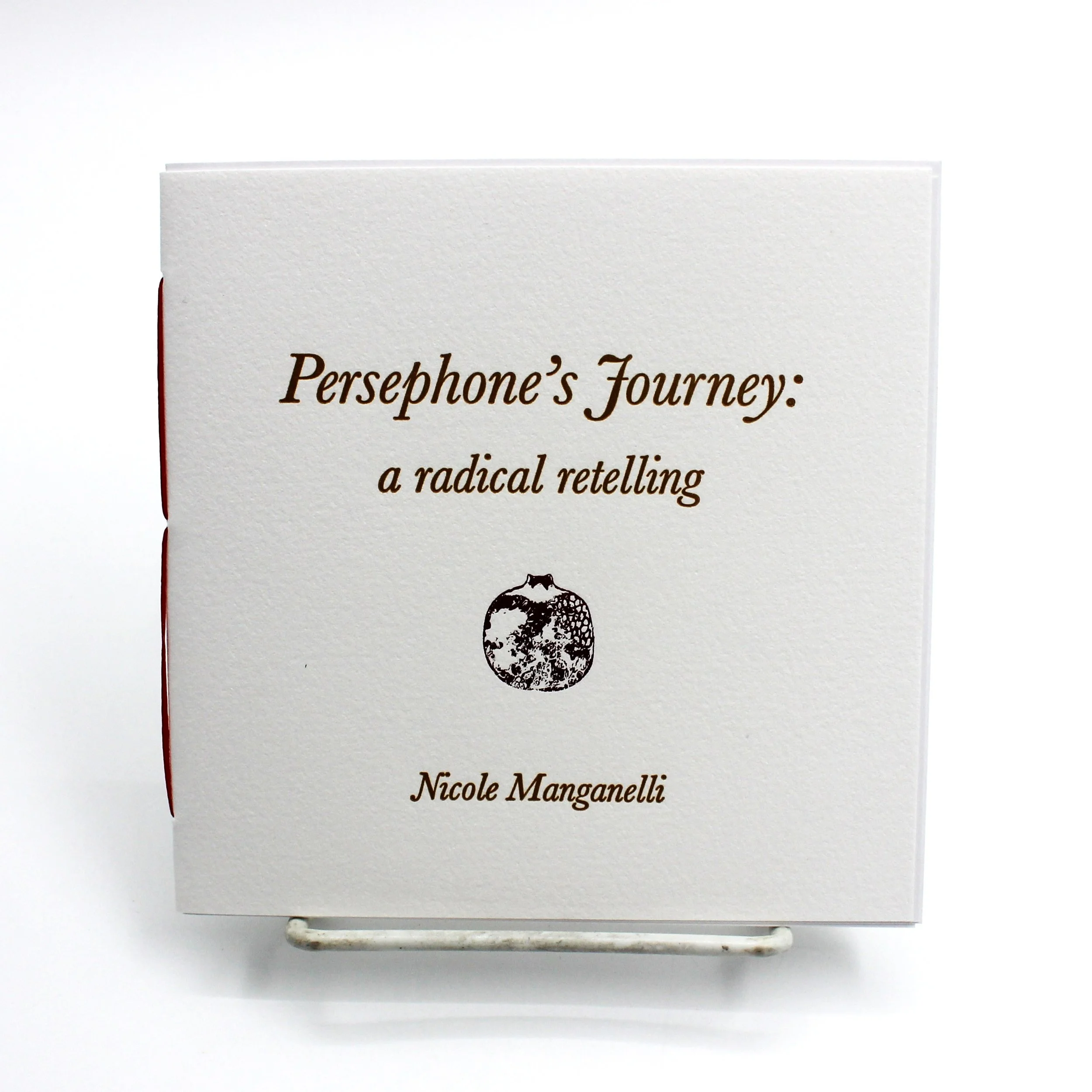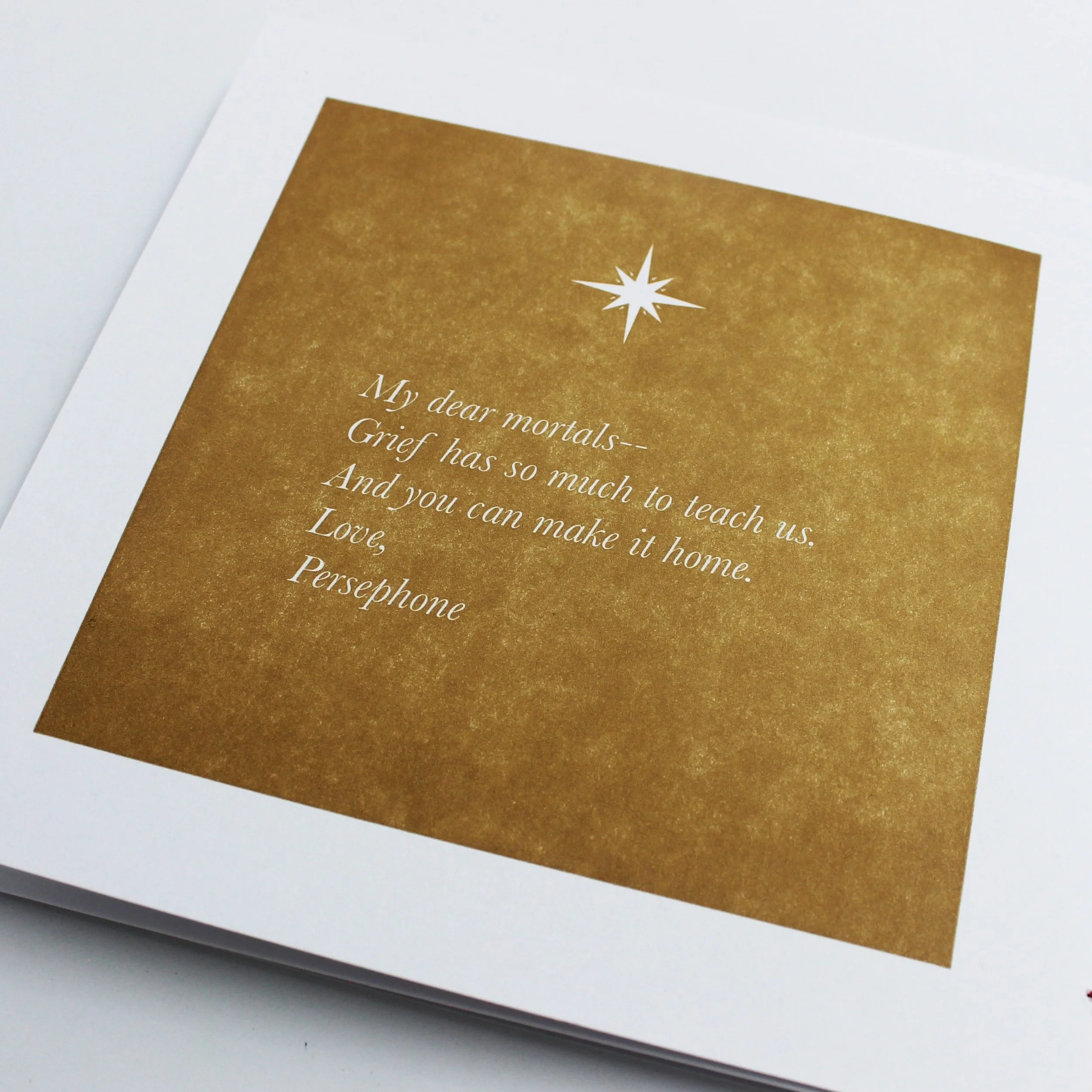 Image 1 of 6
Image 1 of 6

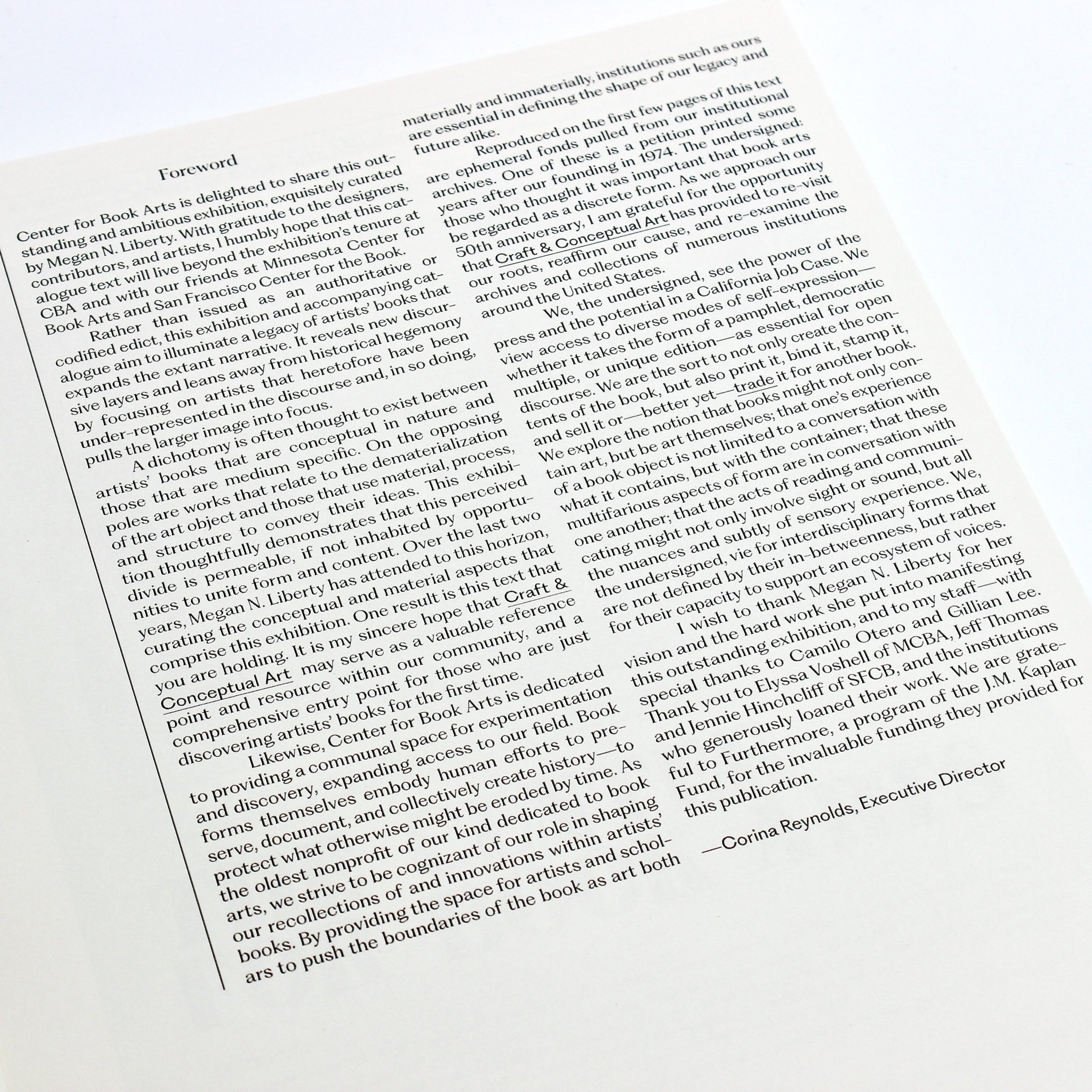 Image 2 of 6
Image 2 of 6

 Image 3 of 6
Image 3 of 6

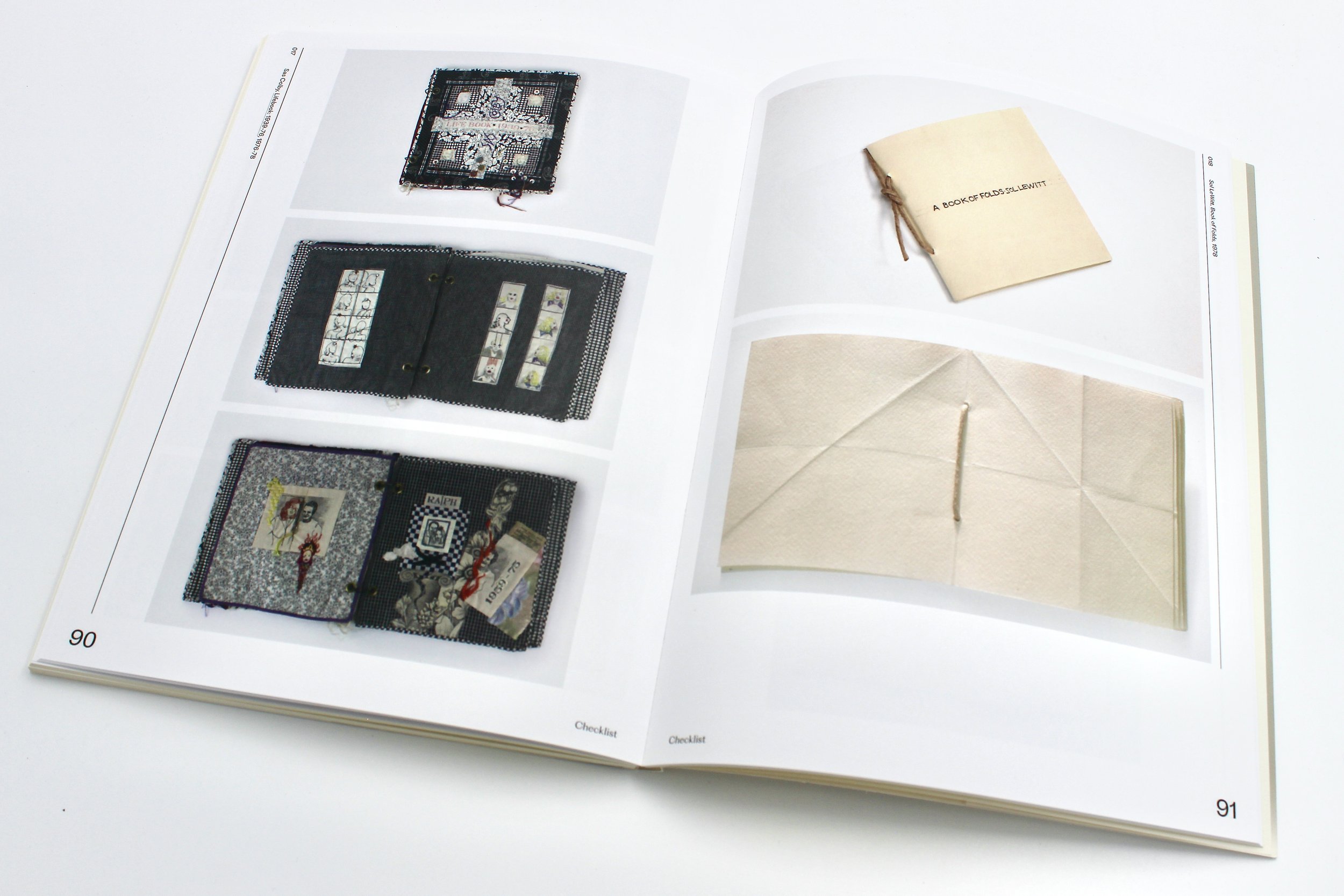 Image 4 of 6
Image 4 of 6

 Image 5 of 6
Image 5 of 6

 Image 6 of 6
Image 6 of 6







Craft and Conceptual Art Catalog
The Book Craft & Conceptual Art: Reshaping the Legacy of Artists’ Books, edited by Megan N. Liberty, reconsiders the early history of artists’ books. This fully illustrated catalog features additional contributions by David Senior, Sur Rodney (Sur), Kayleigh Perkov, and Tara Aisha Willis, and a selection of reprinted historical texts.
In the history of art, craft and conceptual art are often placed at odds. Craft emphasizes the materiality of the object, while conceptual art emphasizes the dematerialization of the object. But artists’ books offer a unique merging of these premises in the book’s status as a conceptual, tactile, and often ephemeral object. Successful artists’ books blend the craft of its making—paper, binding, scale, and printing method—with a conceptual premise tied to its status as time-based media in which the idea of the book—sequence, repetition, and audience activation—is essential to its meaning. While early exhibitions and writing on artists’ books maintained both these practices, including unique and small-edition handmade books that verge towards sculpture alongside mass-produced photobooks, paperbacks, and stapled zines, the history of artists’ books has since shifted, primitizing only the democracy of the genre and ghettoizing expensive, unique, and sculptural bookworks.
Craft & Conceptual Art: Reshaping the Legacy of Artists’ Books, revisits this early history, focusing on the intertwined legacies of book art centers across the US whose primary goal has been to teach the craft practices of book arts, and other institutions focused on distribution and collecting. Tracing the foundation and production of book art organization across the US—including, Center for Book Arts in 1974, Printed Matter and Franklin Furnace in 1976, Minnesota Center for Book Arts in 1983, and San Francisco Center for the Book in 1996—this exhibition will show craft and conceptual art not to be opposites, but rather two ends of a spectrum of book art practices.
The book focuses on book art production beginning in the mid 1960s that was exhibited from 1973-1996, drawing a—albeit zig-zag—line from the first cited US exhibition of artists’ books at Moore College to the founding of San Francisco Center for the Book, charting an expanding definition, practice, and legacy of bookmaking across the US. It will include a range of artists, from Liliana Porter, Howardena Pindell, and Suzanne Lacy, to Barton Lidice Beneš and Sas Colby. Leaning heavily on the archives and exhibition history of institutions devoted to craft and conceptual art, this exhibition will revisit who and what was considered an “artists’ book.” In doing so, Craft & Conceptual Art will shed new light on both ends of the sliding scale between craft and conceptual art, allowing us to better understand the growing field of artists’ book production.
This fully illustrated catalog features additional contributions by Sur Rodney (Sur), David Senior, Kayleigh Perkov, and Tara Aisha Willis, and a selection of reprinted historical texts. Designed by Dante Carlos and Brian Walbergh.
This publication was made possible with support from Furthermore: a program of the J. M. Kaplan Fund.
120 pages. 9”x12”
*This item is discount-eligible. MCBA members receive a 10% discount on this item.
The Book Craft & Conceptual Art: Reshaping the Legacy of Artists’ Books, edited by Megan N. Liberty, reconsiders the early history of artists’ books. This fully illustrated catalog features additional contributions by David Senior, Sur Rodney (Sur), Kayleigh Perkov, and Tara Aisha Willis, and a selection of reprinted historical texts.
In the history of art, craft and conceptual art are often placed at odds. Craft emphasizes the materiality of the object, while conceptual art emphasizes the dematerialization of the object. But artists’ books offer a unique merging of these premises in the book’s status as a conceptual, tactile, and often ephemeral object. Successful artists’ books blend the craft of its making—paper, binding, scale, and printing method—with a conceptual premise tied to its status as time-based media in which the idea of the book—sequence, repetition, and audience activation—is essential to its meaning. While early exhibitions and writing on artists’ books maintained both these practices, including unique and small-edition handmade books that verge towards sculpture alongside mass-produced photobooks, paperbacks, and stapled zines, the history of artists’ books has since shifted, primitizing only the democracy of the genre and ghettoizing expensive, unique, and sculptural bookworks.
Craft & Conceptual Art: Reshaping the Legacy of Artists’ Books, revisits this early history, focusing on the intertwined legacies of book art centers across the US whose primary goal has been to teach the craft practices of book arts, and other institutions focused on distribution and collecting. Tracing the foundation and production of book art organization across the US—including, Center for Book Arts in 1974, Printed Matter and Franklin Furnace in 1976, Minnesota Center for Book Arts in 1983, and San Francisco Center for the Book in 1996—this exhibition will show craft and conceptual art not to be opposites, but rather two ends of a spectrum of book art practices.
The book focuses on book art production beginning in the mid 1960s that was exhibited from 1973-1996, drawing a—albeit zig-zag—line from the first cited US exhibition of artists’ books at Moore College to the founding of San Francisco Center for the Book, charting an expanding definition, practice, and legacy of bookmaking across the US. It will include a range of artists, from Liliana Porter, Howardena Pindell, and Suzanne Lacy, to Barton Lidice Beneš and Sas Colby. Leaning heavily on the archives and exhibition history of institutions devoted to craft and conceptual art, this exhibition will revisit who and what was considered an “artists’ book.” In doing so, Craft & Conceptual Art will shed new light on both ends of the sliding scale between craft and conceptual art, allowing us to better understand the growing field of artists’ book production.
This fully illustrated catalog features additional contributions by Sur Rodney (Sur), David Senior, Kayleigh Perkov, and Tara Aisha Willis, and a selection of reprinted historical texts. Designed by Dante Carlos and Brian Walbergh.
This publication was made possible with support from Furthermore: a program of the J. M. Kaplan Fund.
120 pages. 9”x12”
*This item is discount-eligible. MCBA members receive a 10% discount on this item.
Megan N. Liberty is an arts writer, editor, and archivist based in Brooklyn who writes about artists’ books, ephemera, archives, and other multidisciplinary meetings of text and image. She is the Art Books section editor at the Brooklyn Rail and co-founder of the Book Art Review. Her writing appears regularly on Hyperallergic and in ArtReview, and has also been published in Artforum.com, Art in America, Frieze, NY Review of Books Daily, LA Review of Books, White Review,Art in Print, and elsewhere. She has led and participated in public conversations on artists’ books and publishing with the Brooklyn Rail, Contemporary Artist Book Conference, Hill Art Foundation, and Miriam Gallery, and teaches workshops for early career artists on the practical and conceptual importance of self-archiving. She was a 2019-20 AICA/USA and Creative Capital/The Andy Warhol Foundation’s Arts Writing Workshop participant, and has an MA in Art History from the Courtauld Institute of Art, London and a BA in English from Dickinson College, PA.

